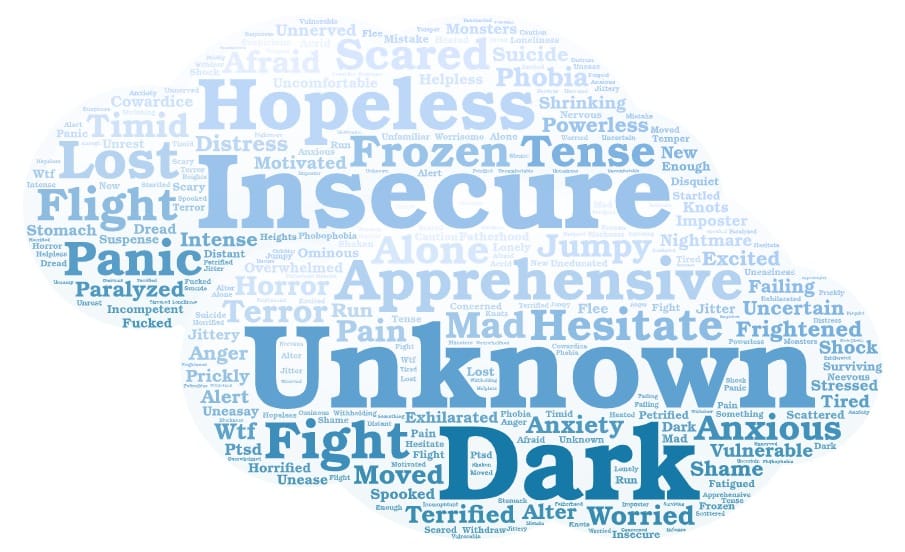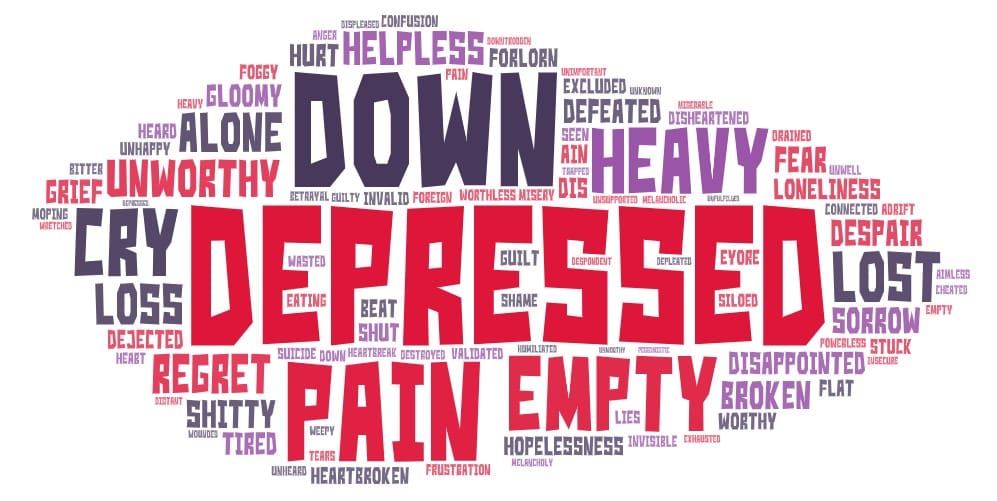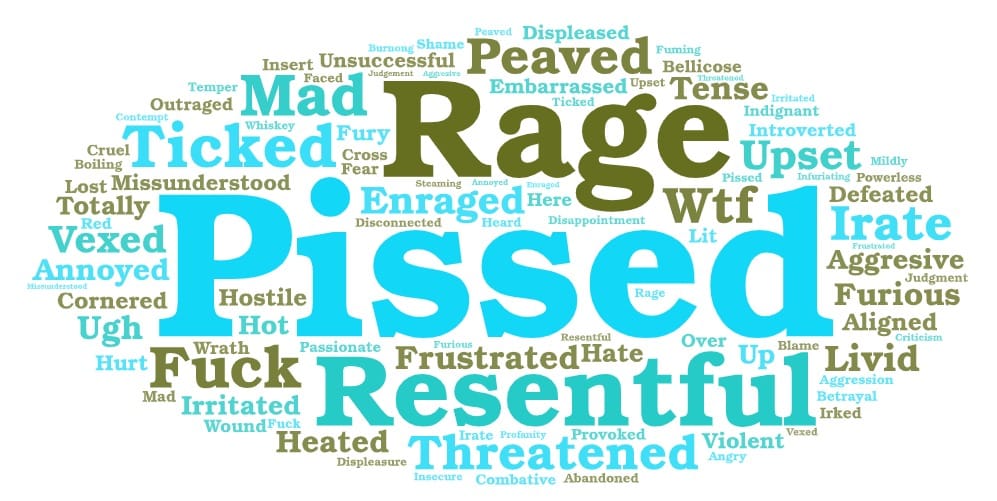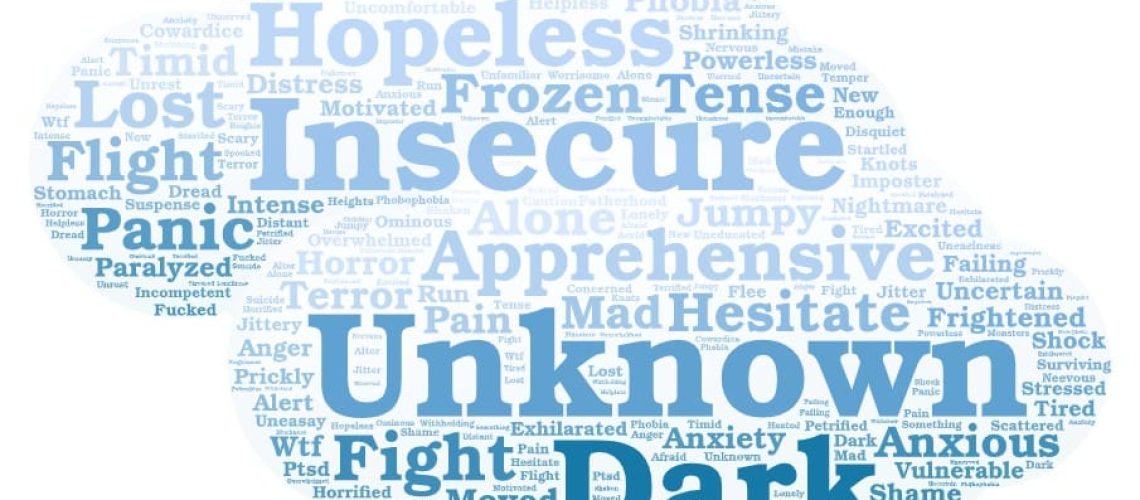As men, we have had emotions conditioned out of us for most of our lives. The constant refrain from other men to “Suck it up” and “Be tough. Be Strong.” Any show of emotion other than anger is considered a weakness. Many men adhere to this paradigm with the refrain that they don’t want to be “soft” or “weak.”
The truth is that the way we men think about “Strong” is often flawed. But that is a whole other conversation. You can have a listen to my TEDx on the subject if you want to hear more of my thoughts there.
The bottom line is that this unwillingness to express emotion can lead to a very limited Emotional Vocabulary. Even for men, like me, who were raised in homes where emotional expression was not suppressed, our cultural norms, media and everyday influences ensure that we cling to the idea that emotional suppression = strength.
Last night in our Connect’d Men’s group, we discussed this issue and practiced building our Emotional Vocabulary. Dr. Lisa Feldman Barret coined the term Emotional Granularity, which describes a more robust explanation of Emotional Vocabulary.
Theme: Emotional Vocabulary(aka Emotional Granularity)
The importance of distinguishing between similar emotions, such as frustration, irritation, and anger, lies at the core of emotional granularity. This concept is significant for several reasons:
Improved Emotional Intelligence: Recognizing and naming specific emotions accurately enhances emotional intelligence. It allows you to understand your own emotional states more deeply, leading to better self-regulation. When you can pinpoint exactly what you’re feeling, you’ll be more capable of finding an appropriate response or solution to your emotional state.
For example, understanding the difference between feeling frustrated due to unmet expectations and feeling angry because of perceived injustice can lead to more effective coping strategies.
Enhanced Communication: With a rich emotional vocabulary, you can communicate your feelings more precisely to others. This precision in communication can reduce misunderstandings and conflicts within relationships. It helps convey emotion, intensity, and nuances, which can be pivotal in personal and professional interactions.
Better Mental Health: Research by Lisa Feldman Barrett and others suggests that individuals with higher emotional granularity tend to experience less burden from their emotions. They are better at coping with stressful situations and are less likely to resort to harmful coping mechanisms like substance abuse. By understanding and labelling your emotions accurately, you can choose more effective strategies to address your feelings, leading to improved mental health outcomes.
Decision Making:
Emotional granularity aids in decision-making processes. When you understand your emotions with nuance, you are better positioned to make decisions that consider your emotional well-being. Instead of reacting impulsively based on a vague feeling, you can assess the specific emotions influencing your thoughts and choose a course of action that addresses the underlying issues.
Emotional Development:
Developing a nuanced understanding of one’s emotions is a lifelong process contributing to overall emotional growth. It encourages introspection and mindfulness as you learn to observe and describe your emotions with increasing sophistication. This ongoing development is crucial for personal growth, resilience, and fulfillment.
In essence, the ability to distinguish between similar emotions is not just about having a richer vocabulary; it’s about enhancing emotional intelligence, improving relationships, fostering better mental health, making informed decisions, and supporting continuous personal development. These benefits underscore the importance of emotional granularity in achieving a balanced and insightful approach to emotional well-being.
Last night, we did an exercise and unpacked three emotions: Fear, Anger and Sadness. We spent some time brainstorming as many variations of these core emotions as we could. Below are the results of our Emotional Vocabulary brainstorm.



If you would like to learn more about Connect’d Men you can find information here. If you would like to discuss one-on-one support or having me come speak at your event please book a discovery call here.
